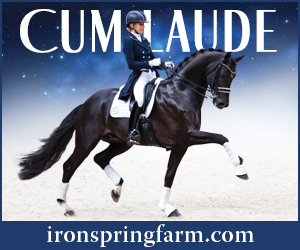An in-depth look into better understanding ingredients
By: SmartPak
Horse owners want to do everything they can to keep their horses feeling their very best. Whether your horse is an active competitor or a retired companion, horses at any stage in life can benefit from the support of a supplement. But what makes those supplements work? Here we’re going to take a closer look at four best-selling supplement categories, going inside the pellets and powders to help you understand the ingredients that support your horse’s health and performance.
Ingredients to support your horse’s joints
Every horse’s joints are under stress. Your horse’s body has a limited ability to repair and rebuild the “wear and tear” to joints that comes with being a horse in its natural state, and research has shown that even wild mustangs can develop joint deterioration. When you add in the increased demands of riding and training, it’s easy to see how your horse’s joints may be experiencing more damage than his body can keep up with. Luckily, there are ingredients that can help by ensuring that your horse always has a steady supply of the components he needs to cope with the stress of exercise and maintain healthy joints.

Three of the major ingredients for joint health are glucosamine, chondroitin sulfate, and hyaluronic acid. They’re referred to as “Mother Nature’s Big Three” because they are forms of the ingredients your horse’s body already produces. Glucosamine supports the production of new cartilage, which acts as a cushion between joints. Chondroitin sulfate stimulates the production of hyaluronic acid and proteoglycans, which are integral components of your horse’s joints. In addition, it inhibits the enzymes that break down cartilage. Hyaluronic acid is an integral component of joint fluid and articular cartilage that provides both lubrication and shock absorption. Another important ingredient to consider is MSM, a bioavailable form of sulfur for building and repairing cartilage, and supporting a normal response to the inflammation associated with exercise and activity. Finally, herbs like Devil’s claw, Yucca, and Boswellia are also used to fight discomfort in joints and other tissues, along with supporting a normal inflammatory response.
Ingredients to support your horse’s tendons & ligaments
As with your horse’s joints, riding and training can put major stress on your horse’s tendons and ligaments. Excessive strain to these vital tissues can be hard to heal and a serious threat to future performance. Supporting your horse’s soft tissue health now with a tendon and ligament supplement is a smart way to help keep him going strong for years to come.
Tendon and ligament supplements commonly provide collagen, silica, and antioxidants to help keep connective tissues strong and resilient. Collagen is the main structural protein found in connective tissues like tendons and ligaments. Meanwhile, Silica has been shown to help maintain the strength of tendons and ligaments. Antioxidants such as Grape seed extract and Vitamin C support cellular health through the body by helping neutralize the damaging free radicals released during times of stress.
Ingredients to support your horse’s hooves
“No hoof, no horse” is a phrase that all horse owners can agree on. Your horse’s hooves are his foundation, so keeping them healthy and strong is essential. Along with regular professional maintenance, plenty of exercise, and other management, proper nutrition and healthy
circulation play vital roles in hoof health. Daily support from key ingredients is a smart way to help ensure your horse is always ready to step up to the challenge.
Ingredients such as Biotin, Zinc, and Copper support healthy hoof growth and help keep hooves strong. Research has shown that supplementing with 10-30 mg of biotin per day may help support growth rate and quality hoof wall in horses with weak hooves. Zinc plays an important role in the formation of keratin, which is the structural protein that gives hooves their hardness. Additional ingredients include Lysine and Methionine which play a vital role in the formation of hoof structures. Because the hoof wall is dead tissue (like your fingernails) that grows from the top down, you’ll see healthy new growth start to come in from the coronary band.

The health of your horse’s outer hoof structure starts on the inside, with healthy circulation delivering nutrient-rich blood to nourish tissues. Arginine, which is an essential amino acid in horses, is a key ingredient found in hoof circulation supplements because it supports healthy blood flow. These supplements may also provide herbs like Yucca, Turmeric, and Boswellia to help alleviate the discomfort that horses with poor hoof circulation may experience.
Ingredients to support your horse’s stomach
Your horse’s stomach was designed to continuously produce acid to help break down food. In a natural grazing situation, where a horse is eating and chewing all day, the stomach acid produced is buffered by forage and saliva, keeping it from damaging the sensitive stomach lining. However, the modern horse’s diet is often composed of infrequent meals of hay and grain, with most of the day spent with an empty stomach. This practice can lead to gastric upset, which can affect your horse’s attitude, performance, and overall health. For that reason, daily support from several key ingredients is a smart way to help ensure that your horse has what he needs to maintain a healthy stomach.
Ingredients such as Calcium and Magnesium help neutralize the gastric acid that your horse’s stomach is constantly producing. Glutamine and Sea buckthorn help support the integrity and resilience of stomach lining. Lecithin protects gastric tissue by forming a barrier between the contents of your horse’s stomach and his sensitive stomach lining. Glycine has been shown to help limit excess gastric acid production and protect the stomach lining. Finally, herbs like Aloe vera, Licorice, Slippery elm, and Marshmallow root may help soothe the stomach lining.
Ingredients to support your horse’s hindgut
Your horse’s hindgut has many important jobs, including digesting his forage, playing a role in immune health, absorbing key nutrients, and more. Unfortunately, it’s often under stress from common activities like training, traveling, and competing, and typical barn events like hay or grain changes. That stress can lead to poor hindgut function, which can seriously impact your horse’s performance and overall health. Luckily, one way you can help your horse cope with digestive stress is by providing daily support for a healthy and balanced hindgut.
Two common digestive health ingredients that horse owners probably hear the most about are probiotics and prebiotics. Probiotics are microscopic organisms that help break down food in the hindgut and are responsible for the production of energy and some vitamins. Prebiotics are sources of non-digestible, soluble fiber that serve as food for probiotics, keeping them healthy so that they can perform their important role in the digestive process. Other ingredients often found in digestive supplements include: Enzymes, which break down fats, protein, and starch into smaller particles that are able to be absorbed, and Yeast, which supports fiber digestion and assists in adjusting to feed changes.
From joint health to hoof health and everything in between, there are a variety of areas that may benefit from the targeted support of supplement ingredients. When developing the perfect supplement program for your horse, be sure to work with your veterinarian and the rest of your horse’s health care team to ensure he’s getting everything he needs to look and feel his best.
















